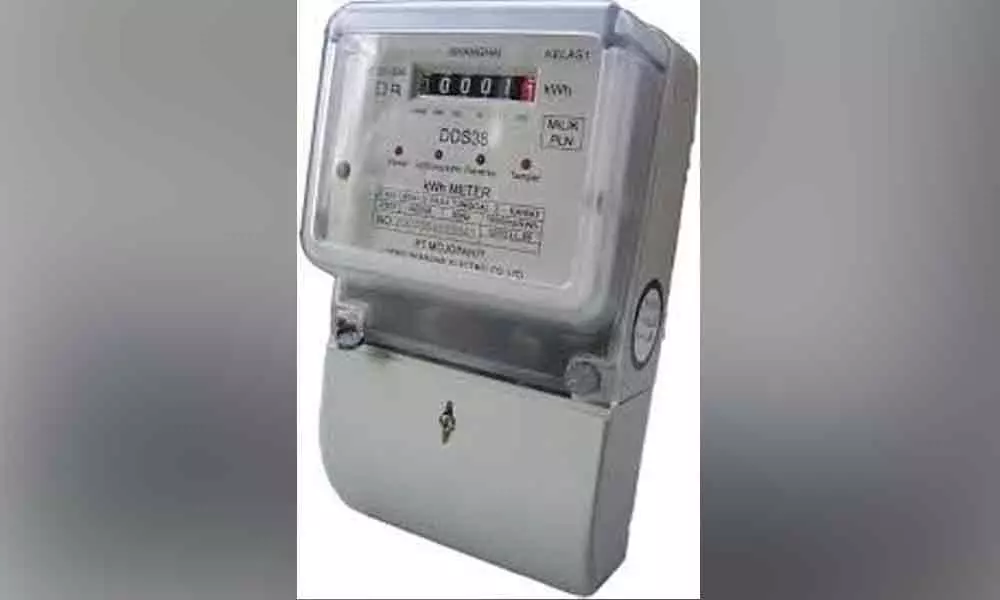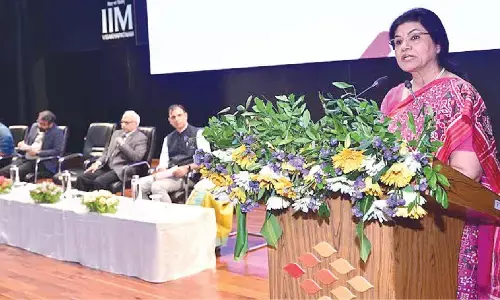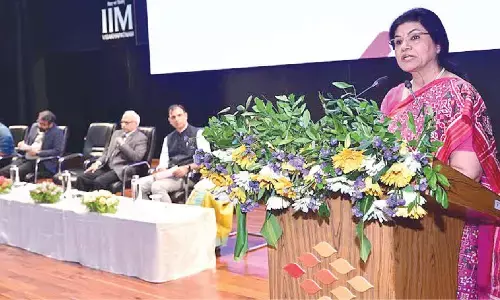Ongole: Discoms prepare to remove doubts over power bills
 distribution companies (discoms) are preparing to clear the doubts over power bills
distribution companies (discoms) are preparing to clear the doubts over power bills- Imparting training to ground level staff and sending officials to the houses of those who complain of abnormal bills
- In contrast to the earlier practice of categorisation based on consumption during the previous financial year, the new system introduced from April 1 classifies domestic consumptions on the basis of consumption during the billing month itself
Ongole: As the criticism and apprehensions mount on new power bills for March-April from consumers, distribution companies (discoms) are preparing to clear the doubts of all consumers by training the ground level staff and sending officers to the homes of the complainants.
Up to March 31, this year, discoms categorised each domestic connection into A, B and C based on the consumption in previous financial year. If the average monthly consumption is less than 75 units, it is in Group A, if it is more than 75 units but less than 225 units, it is in Group B and if it is more than 225 units, then it is in Group C. These groups used to be applied for the next financial year from March to April. Since the April 1, 2020, a new system of calculation has been brought into force and the categories A, B and C to be decided on the consumption of that billing month.
That means those who use excess units of power will pay higher price per unit, while those who save energy will be charged lesser price per unit. For example, the consumer with connection No 4353310102120 is charged Rs 1,378 for consumption of 402 units in March and April 2020. This consumer is in Group B in 2019-20, based on the monthly average consumption in 2018-19. The earlier bill is generated on March 4, 2020 while the fresh bill is generated on May 7, 2020. The average of the consumption of power can be obtained by splitting 402 units for the remaining 27 days in March, 30 days in April and 7 days in May and it is 6.3 units per day. That is, the consumer utilised 170 units up to March 31 and 232 units between April 1 and May 7.
As the consumer is in Group B, up to March 31, his 27 days of consumption of 170 units is divided as per the telescopic billing model, by rounding the decimals to nearest whole number. Being the March bill calculated in the earlier slab rates for only 27 days, the user is charged a total of Rs 522 at Rs 2.60 per unit from 0 to 45 units, Rs 2.60 per unit from 45 to 90 units, and Rs 3.60 per unit from 90 to 170 units.
As per the new slab system introduced from April 1, the consumer is charged for 232 units at the new slab rates for 37 days under Group B price table. He is charged a total of Rs 711 at Rs 2.60 per unit from 0 to 62 units, Rs 2.60 per unit from 62 to 124, Rs 3.60 per unit from 124 to 232 units. With the electricity department imposing electricity duty of 6 paise per each unit consumed and Rs 50 for every month as customer charges, extra of Rs 124 adds to the bill for consumption of 402 units in two months. The electricity department issued the bill for Rs 344 after deducting the Rs 1,000 received from the customer in April.
Prakasam district superintending engineer of APCPDCL, N V S Subbaraju said that the public are confused over the false propaganda on the electricity bills. He said that they are publishing pamphlets and training the staff to clear the misconceptions among the consumers. He clarified that the there was no hike of electricity charges for most of the consumers and the impact on others.
















